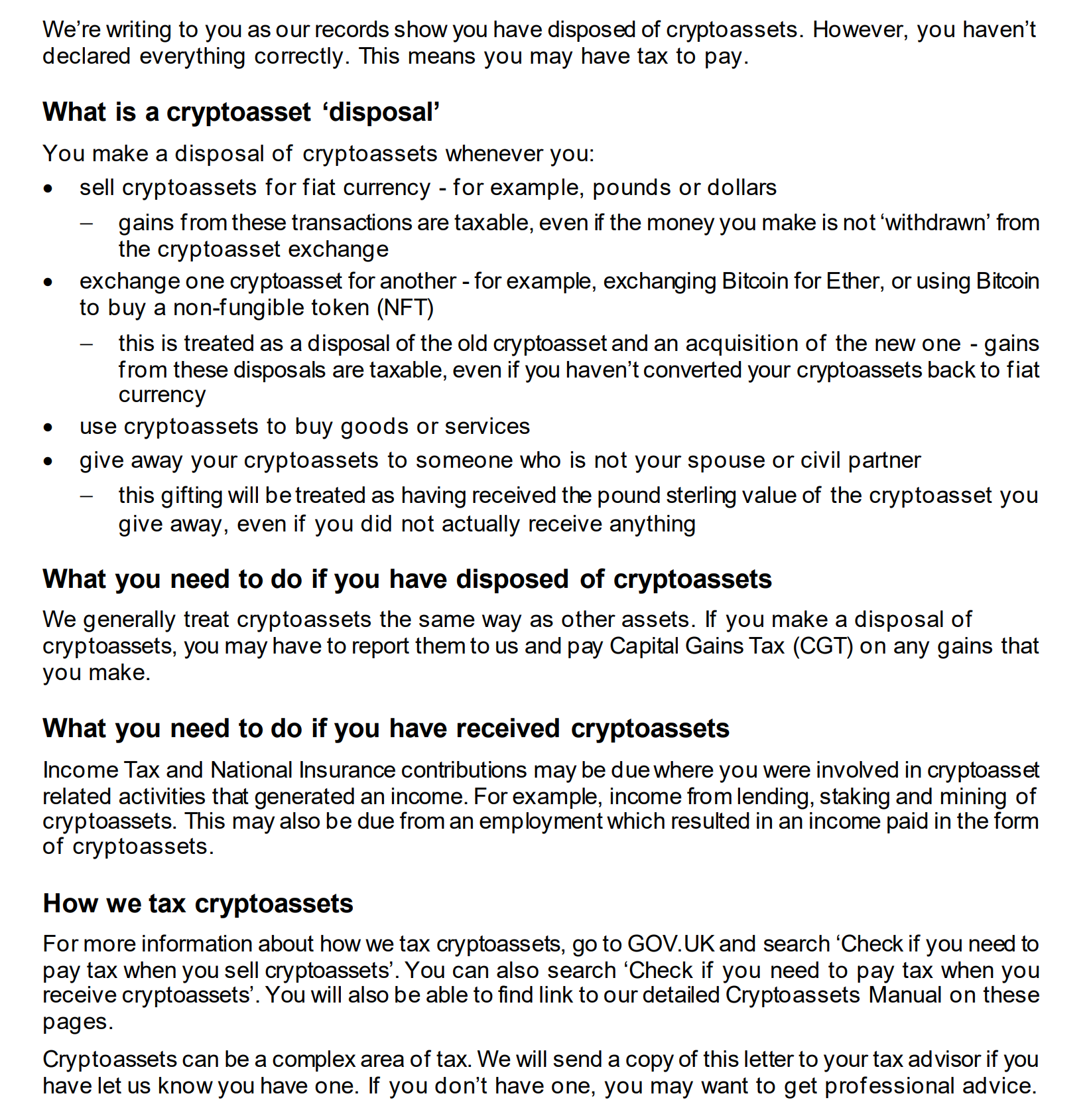
UK Tax Agency Increases Warning Letters for Crypto Tax Compliance
HMRC has significantly intensified its scrutiny over cryptocurrency investments, issuing more warning letters to investors in an effort to ensure compliance with tax regulations.
The UK’s tax authority has significantly increased its vigilance over cryptocurrency investors, sending out more than double the warning letters to individuals believed to be underreporting or avoiding taxes on their digital asset profits.
In the 2024–25 tax year, HM Revenue & Customs (HMRC) dispatched nearly 65,000 letters, up from 27,700 the previous year, as reported by the Financial Times based on information retrieved under the Freedom of Information Act.
These letters, referred to as “nudge letters,” aim to encourage investors to amend their tax returns proactively before formal inquiries start.
This notable surge illustrates HMRC’s increasing emphasis on tax compliance related to cryptocurrency. Over the last four years, the agency has sent out over 100,000 such notifications, with activities accelerating in alignment with rising crypto adoption and asset valuations.
 Example of a previous nudge letter sent in 2024. Source: kc-usercontent
Example of a previous nudge letter sent in 2024. Source: kc-usercontent
Example of a previous nudge letter sent in 2024. Source: kc-usercontent
7 million UK adults hold cryptocurrency
According to estimates from the Financial Conduct Authority, approximately seven million adults in the UK are currently engaged with cryptocurrencies, a notable increase from just around 10% (5 million adults) in 2022 and 4.4% (2.2 million) in 2021, highlighting a growing interest in the sector.
“The tax rules regarding cryptocurrencies are rather intricate, and there is now a significant number of individuals trading in crypto without realizing that even changing from one cryptocurrency to another can trigger capital gains tax,” commented Neela Chauhan, a partner at UHY Hacker Young.
HMRC’s insight into the cryptocurrency market has markedly improved. The agency now receives transactional data directly from major cryptocurrency exchanges and will gain automatic access to worldwide exchange data by 2026, guided by the Organisation for Economic Co-operation and Development’s (OECD) Crypto-Assets Reporting Framework (CARF).
US lawmakers consider crypto tax exemptions
In the United States, lawmakers are currently exploring reforms to cryptocurrency tax regulations, which may include exempting small transactions from taxation and clarifying the treatment of staking rewards. During a recent Senate Finance Committee hearing, the discussion revolved around whether standard cryptocurrency payments should incur capital gains tax and how to accurately categorize income from staking services.
Lawrence Zlatkin, vice president of tax at Coinbase, called on Congress to establish a de minimis exemption for crypto transactions below $300.
Meanwhile, South Korea’s National Tax Service has also intensified efforts against cryptocurrency tax evasion, cautioning that assets even in cold wallets may be confiscated if connected to unpaid taxes.



